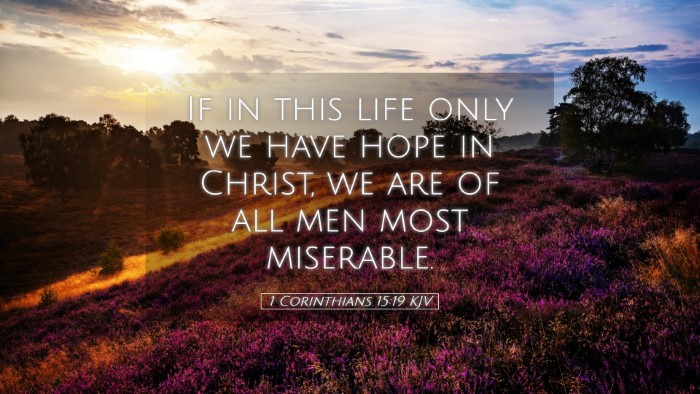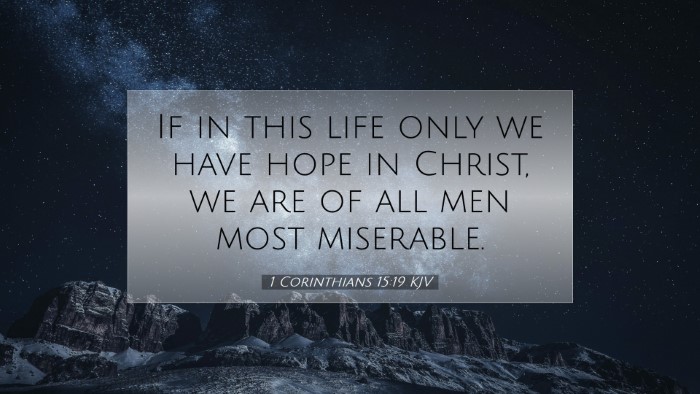Old Testament
Genesis Exodus Leviticus Numbers Deuteronomy Joshua Judges Ruth 1 Samuel 2 Samuel 1 Kings 2 Kings 1 Chronicles 2 Chronicles Ezra Nehemiah Esther Job Psalms Proverbs Ecclesiastes Song of Solomon Isaiah Jeremiah Lamentations Ezekiel Daniel Hosea Joel Amos Obadiah Jonah Micah Nahum Habakkuk Zephaniah Haggai Zechariah MalachiVerse
1 Corinthians 15:1 1 Corinthians 15:2 1 Corinthians 15:3 1 Corinthians 15:4 1 Corinthians 15:5 1 Corinthians 15:6 1 Corinthians 15:7 1 Corinthians 15:8 1 Corinthians 15:9 1 Corinthians 15:10 1 Corinthians 15:11 1 Corinthians 15:12 1 Corinthians 15:13 1 Corinthians 15:14 1 Corinthians 15:15 1 Corinthians 15:16 1 Corinthians 15:17 1 Corinthians 15:18 1 Corinthians 15:19 1 Corinthians 15:20 1 Corinthians 15:21 1 Corinthians 15:22 1 Corinthians 15:23 1 Corinthians 15:24 1 Corinthians 15:25 1 Corinthians 15:26 1 Corinthians 15:27 1 Corinthians 15:28 1 Corinthians 15:29 1 Corinthians 15:30 1 Corinthians 15:31 1 Corinthians 15:32 1 Corinthians 15:33 1 Corinthians 15:34 1 Corinthians 15:35 1 Corinthians 15:36 1 Corinthians 15:37 1 Corinthians 15:38 1 Corinthians 15:39 1 Corinthians 15:40 1 Corinthians 15:41 1 Corinthians 15:42 1 Corinthians 15:43 1 Corinthians 15:44 1 Corinthians 15:45 1 Corinthians 15:46 1 Corinthians 15:47 1 Corinthians 15:48 1 Corinthians 15:49 1 Corinthians 15:50 1 Corinthians 15:51 1 Corinthians 15:52 1 Corinthians 15:53 1 Corinthians 15:54 1 Corinthians 15:55 1 Corinthians 15:56 1 Corinthians 15:57 1 Corinthians 15:58

